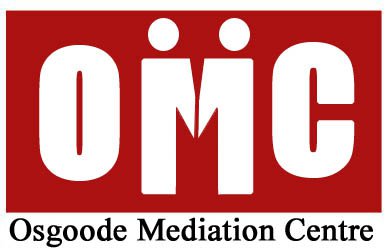
At first glance, many people see “Meditation” when they see the term Mediation. And while meditation is certainly good for the health and mental well-being of many people, it is a different process than mediation.
Mediation is a way to deal with conflict. We all experience conflict in our everyday lives. With our family members, co-workers, friends, or dealing with everyday situations with neighbours, retail personnel, teachers and anyone else we come into contact with.
So what happens with this conflict? Sometimes we ignore it and that might work. Sometimes we confront the person and that might work as well. However, often the conflict does not go away or get better. Often it gets worse. This can lead to all sorts of issues including personal impacts that might result in health concerns. It is likely everyone knows someone who has developed anxiety, sleep problems, digestive issues or something like that after prolonged exposure to stressful, conflict-filled situations. While conflict is not the only cause, it certainly contributes significantly. Other impacts are also concerning, particularly having to live in an environment of conflict every day. The uncertainty of how we might have to face a person we are in conflict with causes an incredible amount of stress and anxiety. And don’t we have enough of that in our lives?
Some conflict is healthy. After all, who wants to agree with everybody about every single thing, all the time? But while respectful debate and difference of opinion is a good thing, conflict can spiral out of control into fights or arguments or worse. When this level of conflict is reached, respect is generally forgotten in favour of seeing your own viewpoint as the “right” one. This makes it difficult to see that there is another viewpoint and perspective to the conflict. If it gets bad enough, these conflicts can result in legal action—formal complaints, lawsuits, restraining orders.
Legal action of any sort is expensive. It is combative and there is rarely a true “winner” because everyone pays some sort of cost. And you may not get the result you want. So what do you do?
Mediation offers another path. It is part of what is generally called “Alternative Dispute Resolution” and encompasses ways to resolve conflict without legal action. Mediation is a process that includes the people in conflict, a mediator and any other supports needed to make the process successful. This can mean translators, lawyers, support workers or other supports such as a room with windows or taking frequent breaks.
A mediator is an objective third party who has no personal involvement in the conflict. They assist in communicating between the parties to re-gain the ability to see the other perspectives in the conflict. The mediator helps the parties come to a resolution, called a “Memorandum of Agreement.”
Except in specific court-mandated circumstances, mediation is voluntary. The people in conflict have to choose to use the process. During the process, each person has an opportunity to tell their side of the story and listen to the other person tell their side of the story. Common ground between them is explored to bring the points of conflict into perspective. Then everyone brainstorms ideas that would resolve the issues and the ones that work for everyone are identified and agreed to. At the end of the process, the Memorandum of Agreement is written up and everyone gets a copy.
Sounds simple, right? Well, it is tougher (and longer) than reading a few lines on a page. People in this process are stressed. They are often angry and hurt. They all want to be heard and respected. The Mediator has to work to facilitate and help the parties work through it all. It requires a specific set of skills gained from training and experience.
And you are in luck! York University and the surrounding community have the Osgoode Mediation Clinic. It is a free service for conflict coaching (if you have questions), conflict resolution training and mediation services. If you think this process could help you or someone you know, give us a call at (416) 736-5104 or email at OMC@osgoode.yorku.ca today! We are here to help make mediation a process that works for you.
